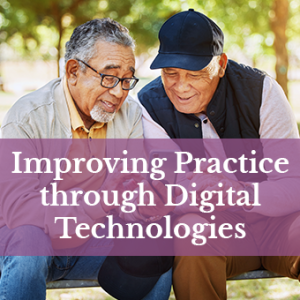
Evaluating the implementation and use of a virtual dementia-friendly rural community model (Verily Connect)

Presenter(s):
Irene Blackberry, La Trobe University, Australia
Abstract
Most people living with dementia and their caregivers live in their communities. Caring for persons living with dementia can lead to social isolation and decreased support for caregivers, especially in rural areas. However, the emergence of information and communication technologies (ICT), such as mobile applications (apps), videoconferencing, and social media, has led to new possibilities for caregivers in rural areas, to address challenges around gaps in accessing services and social connections.
This study evaluated the implementation and use of Verily Connect – a co-designed, integrated website and mobile application which facilitates support and social connection for caregivers of people living with dementia in rural areas. Using the Consolidated Framework for Implementation Research (CFIR) as a conceptual framework, this qualitative study explored barriers and enablers to the use and implementation of Verily Connect. Semi-structured interviews were conducted with 24 health service professionals who trialled the website and application.
A thematic analysis revealed barriers including a lack of digital literacy, a lack of interest in and a fear of technology, as well as privacy concerns. Caregivers also experienced overwhelm and/or preferred face-to-face, one-on-one support. A lack of sufficient dedicated staffing and competing priorities within the health services, as well as challenges recruiting volunteers and the lack of infrastructure to support an online-based service were also barriers. Enablers of the implementation were its alignment with health service goals, the involvement of a university, support from management, and effective marketing strategies. The findings demonstrate the importance of a supportive environment, as well as adequate resourcing, to provide the best foundation for implementation. The strong alignment of the application with the culture of the organisations signals a high potential for the successful implementation of the application.
Bio(s):
Professor Irene Blackberry is Chair of the John Richards Centre for Rural Ageing Research and Director of the Care Economy Research Institute at La Trobe University. Professor Blackberry is a health services and implementation science researcher of complex multifactorial care. She has over 20 years of research experience across the care economy in Australia and abroad, predominantly in healthcare, aged care and informal care sectors. Her research examines access to care and models of care that are innovative, effective and sustainable, building skills in individuals and greater capacity of the whole-of-community to support people from diverse background and rural communities.
Her research focuses on addressing care crisis by breaking down the siloing of care sectors. She is the leading force behind Australian’s Care Economy research including developing an industry-led research partnership program on Care Economy, establishing the Care Economy Collaborative Network and becoming the Inaugural Director of Australia’s first Care Economy Research Institute at La Trobe University. She leads a team of 140 mutidisciplinary researchers and collaborates with 100 industry partners.
Irene is the Past President of Australian Association of Gerontology Victoria, member of the NHMRC Council and Principal Committees 2021-2024 Triennium, on the editorial board of several international journals and expert advisors to government and not-for-profit organisations. She has attracted over $135M in competitive research funding and published 150 reports and journal articles. She has supervised 20 research students to completion and currently supervises 9 PhD students and mentors 10 academics. She holds a bachelor’s degree and PhD in Medicine and a postgraduate study in Program and Economic Evaluation.
